Every once in awhile, the Sanctuary admits a patient that gets our staff to say, “Wow, that’s the smallest I’ve ever seen!”
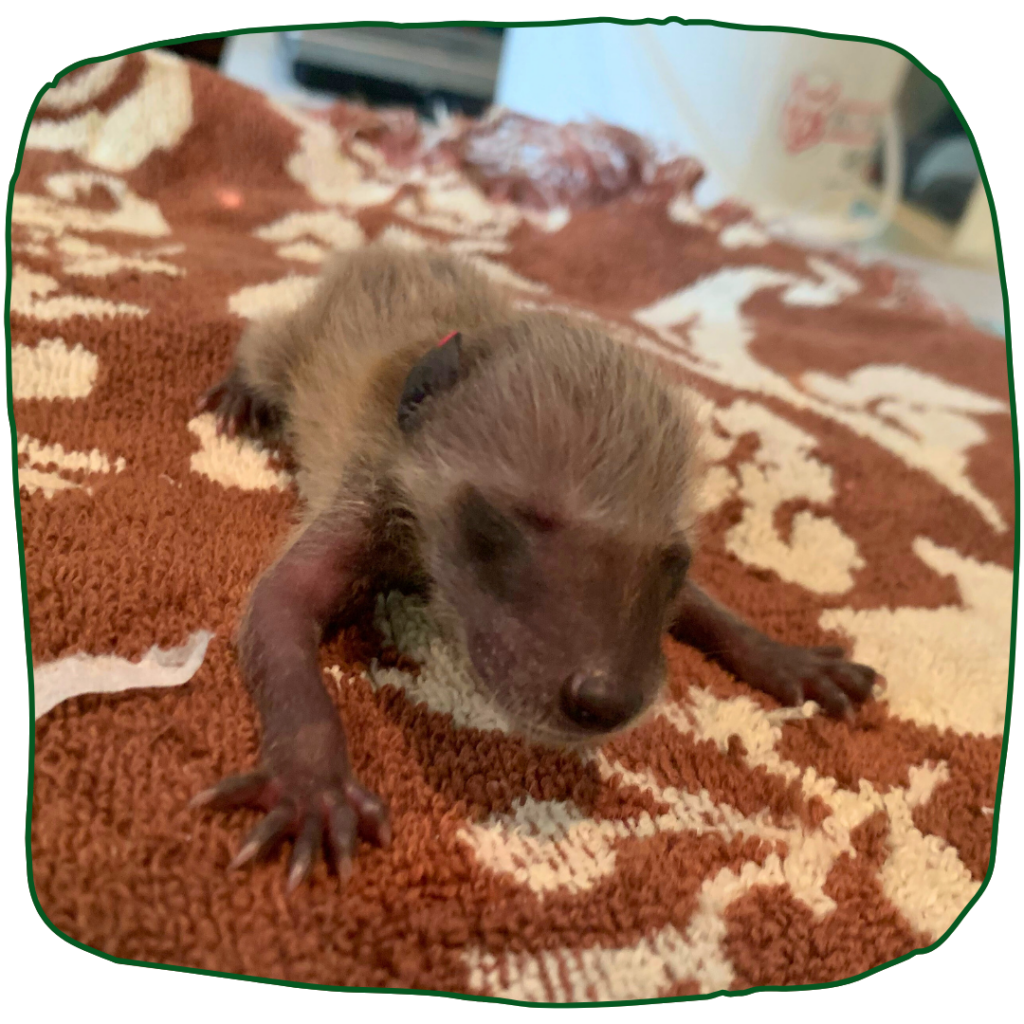
Meet RWS Patients 24-295, 296, and 297: a trio of infant raccoon kits. They each weighed in at just about 55 grams upon admission, which is essentially birth weight for raccoons. In fact, they still have their umbilical cords attached! 😲 Have you ever seen such a small raccoon before?
Sadly, the reason why they needed to come to the Sanctuary is one we hear all too frequently…
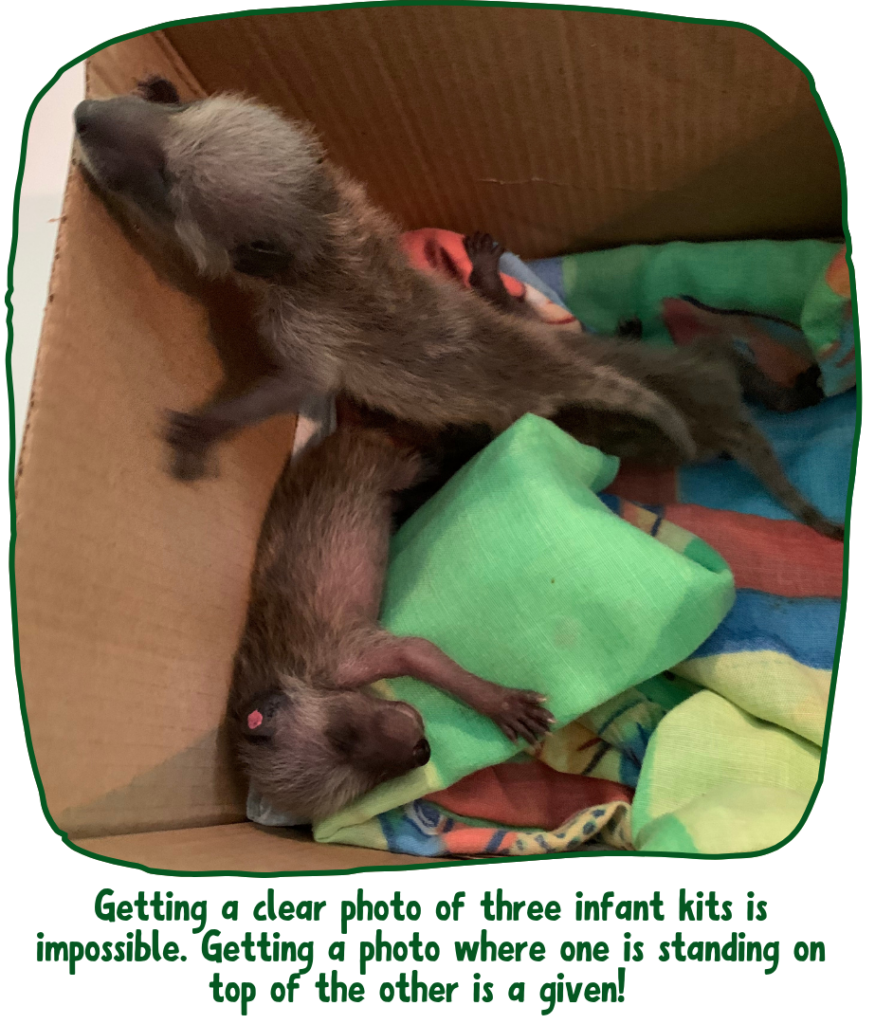
These kits came to RWS for professional care because their mother was shot by a landowner in Campbell County. 😔 The landowner had noticed a raccoon near their barn and decided they didn’t want it there. After shooting her, they found the three babies in a nest inside their barn and decided to call a licensed rehabber. Though we are sad this happened, we are happy they are now at the Sanctuary receiving the round-the-clock care they need.⚕️
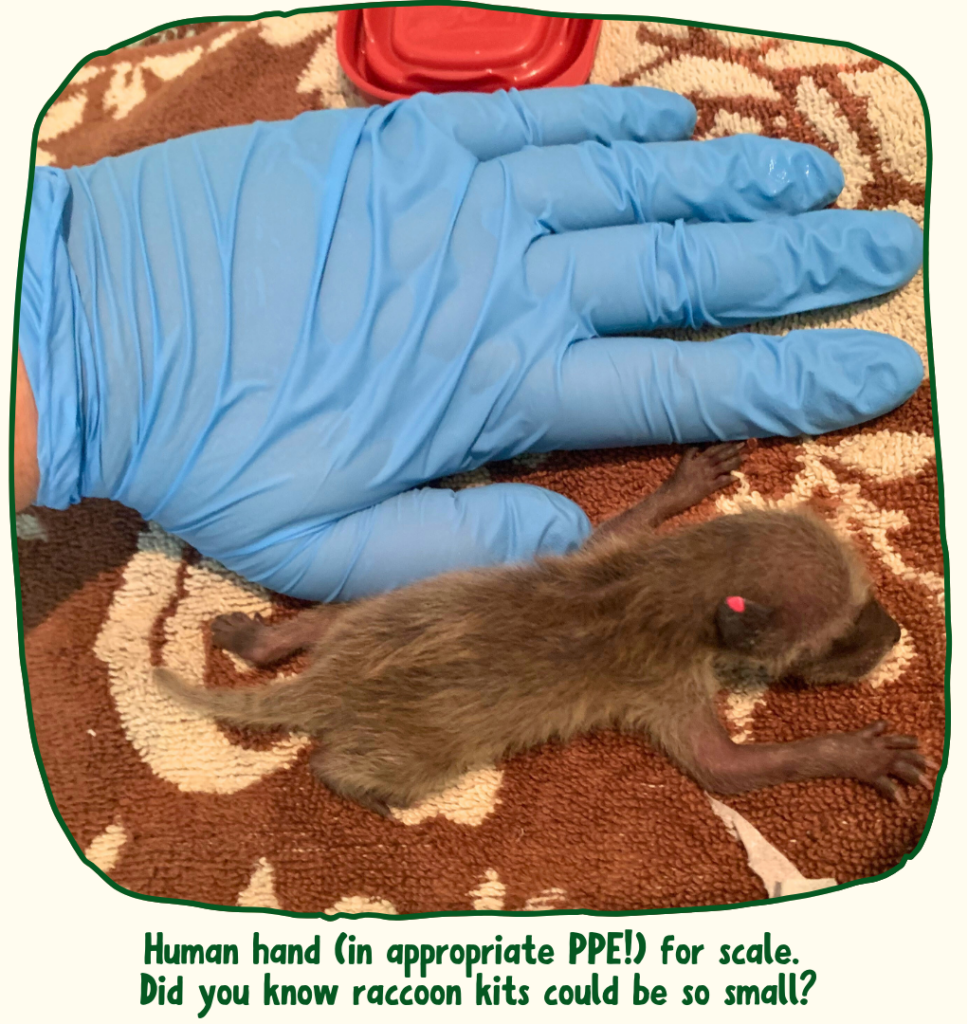
While we advocate for all native wildlife’s right to exist, there are always non-lethal methods of deterrents to try if you don’t want an animal to take up residence in an area like your barn. Smell deterrents available at most farm supply stores can help, as well as noise deterrents. Playing a radio loudly near a suspected nest or den location for a little while can often encourage mom to move elsewhere. Keep in mind that many species, like foxes and raccoons, build secondary den locations they can move their young to. A little patience and creativity can lead to an easy, safe outcome for all! 🦊🦝🐿
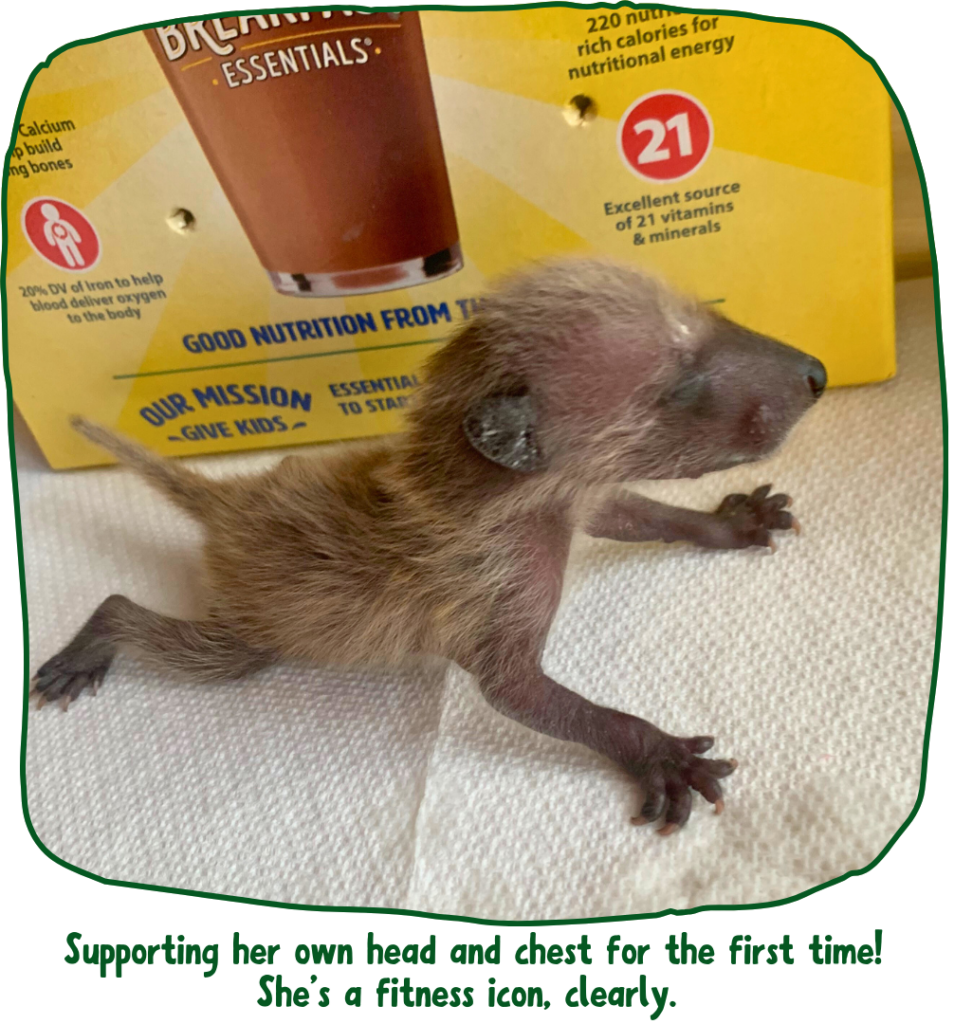
These three patients have been the smallest baby raccoons we’ve ever cared for at the Sanctuary, but we’re happy to share they are doing well so far. Our staff must feed them every two hours with specialized formula. However, their feedings are a bit unique compared to what we’d be able to do for larger raccoon patients. Due to their tiny size and lack of a suckling reflex, we carefully tube-feed them. This ensures they’re getting proper, sustaining nutrition while we work to get them accustomed to bottle-feeding. 🍼 This is also a good reminder that wildlife rehabilitation is best left to the pros!
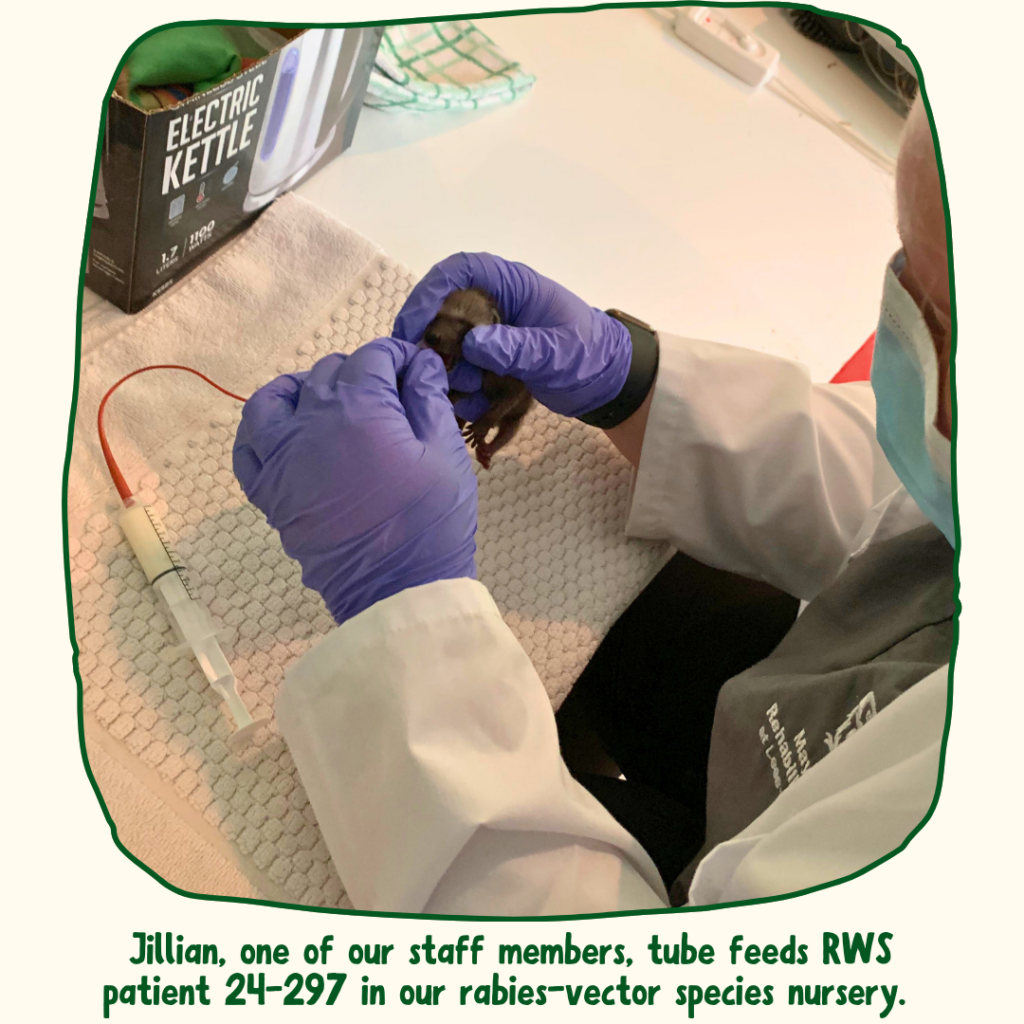
If these kits continue to gain weight and develop well, they’ll progress through their highly individualized care plans at the Sanctuary. That will include being introduced to solid foods, bigger enclosures, lots of enrichment to stretch and train their senses, and, eventually, a raccoon patient’s favorite feature: pools! We will aim to release them by mid- to late-summer, and they’ll help support Virginian ecosystems by dispersing seeds and controlling insect, plant, and prey populations. They’ll look less like fuzzy potatoes at that point and much more like these beautiful raccoon patients we successfully released last summer. ⬇️
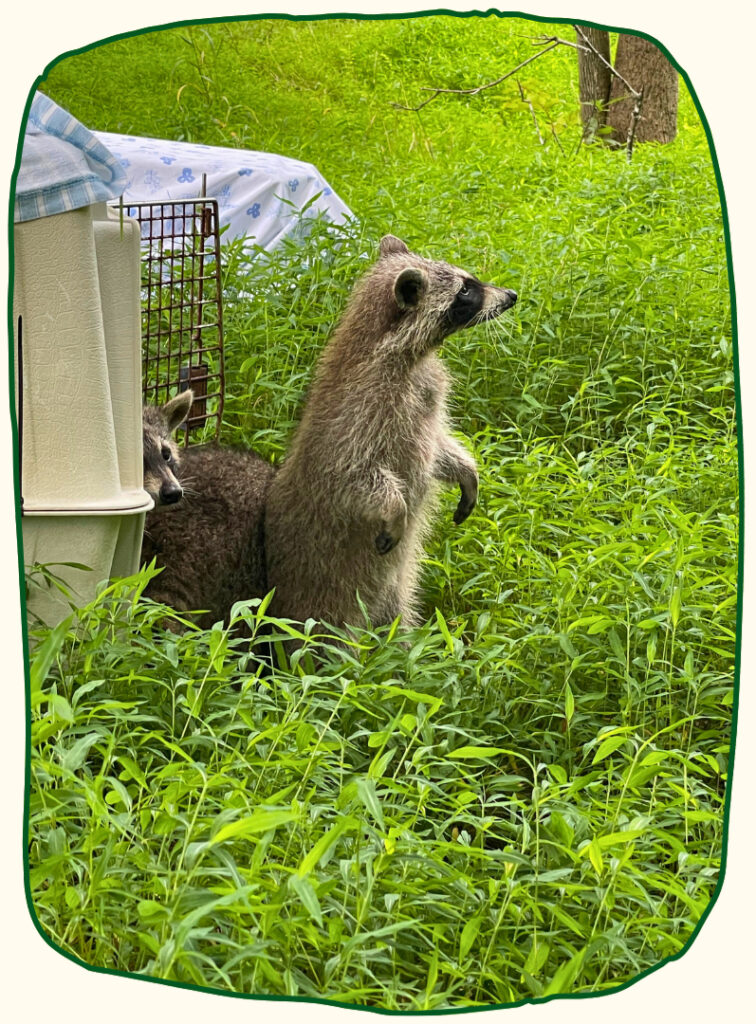
As one of just a few rehabilitation providers that treat raccoons for long-term care in Virginia, we anticipate over 60 raccoon admits this busy summer season! In fact, the tiny trio featured today are among 14 total orphaned kits already in care. If you’d like to help us rehabilitate these charming and important animals, consider becoming a monthly donor to the Sanctuary.
We hope raccoon kits 24-295, 296, and 297 inspire you to keep your head up, even on days when you feel small!
May 10, 2024
Published:
Be the first to comment!